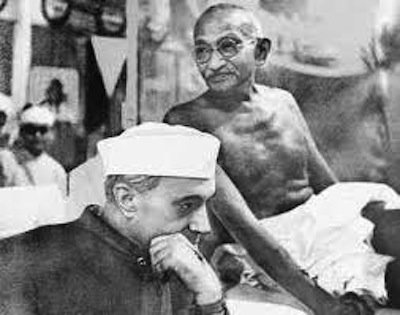The History of India
The History of India and Early Man's Beginning
The History of India began more than 5,000 years ago with the start of human civilization. There is a lot to cover over these thousands of years, but we have condensed the information on this page into a relatively brief and digestible History of India. That being said, as you read, you can click on the links to the Ancient, Medieval, and Modern Histories of India and enjoy more in-depth information on each piece of India's History.
Here, on this page, we have provided you with a brief overview History of India whereby you can learn the most important parts of the Ancient, Medieval, and Modern History of India. We also have other types of pages for you to enjoy on our site such as what life is like in India today, popular travel destinations in India, Indian food recipes, and much more! But for now, lets get back to the History of India!
The history of India was uniquely molded through frequent interactions with migrating people, and through a diverse culture, which emerged throughout India geographically. The History of India is more than a series of events; it is a reflection of human history that carries with it a story of great people and an amazing culture!
As mentioned before, India's story begins 1000s of years ago! Each link will take you to discover more in-depth details on each of India's major time lines! Each brief history of India is broken up to allow you to better understand where one time period ends and another begins.
The History of India Begins 1000s of years ago
We begin with Ancient India History. During this time, the Indus Valley Civilization emerged and would shape India forever. It included the known sites of the Moheno-Daro People, the Harappa People, and Lothal People.
Not long after these cultures had developed and begun to prosper, Aryans migrated into the Country of India and brought with them their influential ideas and beliefs of the Vedic Age. Hinduism was born during this era, which is why it is often referred to as the world's oldest living religion.
During the fifth century, a very brave soldier, named Ashoka, united large areas of India and became one of India's greatest rulers. He converted from Hinduism to Buddhism, and, in result, caused Buddhism to spread throughout India and other areas of Asia. This was the start of fragmented religions in India.
In the eighth century, India's medieval history began. This is when Islam arrived. By the eleventh century, the Islamic movement become a huge political power in India, especially in the states in northern regions. The North Indian Dynasties of the Lodhis, Tughlaqs and others were eventually overpowered by the emergence of a powerful empire known as the Mughal Empire. During the Mughal Empire's rule, India gained back an enormous amount of political unity.
In the seventeenth century, the Europeans arrived and their occupation began. This is the start of what is known as India's modern history. The Europeans weakened the Mughal Empire towards the end of the century and India began to establish individual princely states across the country. France, Portugal, and Great Britain were the primary European Nations to hold power in India.
This is also the part of the history of India where India battled the British for power, and the British were mostly victorious. Later, India held a rebellion from 1857 to 1858 in effort to restore Indian control of the country, but India was unsuccessful. Queen Victoria was crowned Empress of India, and India was considered to be part of the British Empire during this era.
Later, continuous campaigns, such as one lead by Muhatma Gandhi, effectively drove the British out of India in 1947. To better understand the motivation behind India's historical events, it is helpful to familiarize yourself with the culture of India. I hope this brief history of India helped to shed some light on how India got to where it is today. Need more information, visit the Ancient, Medieval, and Modern History of India pages.
Would you like to know what it is like in India today? Now that you have learned about the History of India, you can learn about the ancient culture of India and modern culture of India. Some things a lot of our readers enjoy reading about are India's traditional family culture, Indian weddings, and Indian food recipes (Yumm!).
You can also visit our homepage to see all of the man pages of information we have created for our visitors. Just click below :)
Visit our home page to continue exploring India.
If you like what you have read and want to build your own site, here's how.



